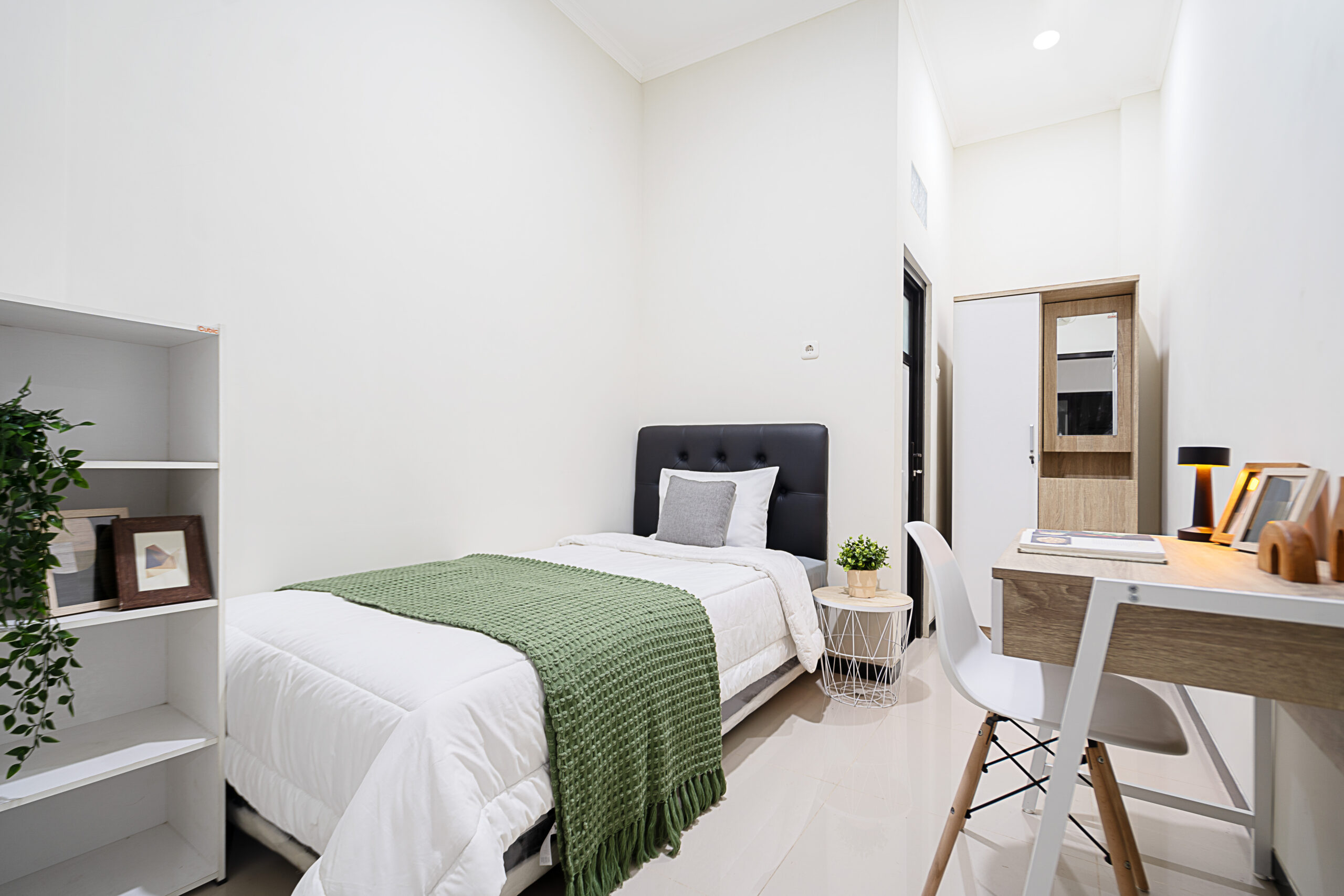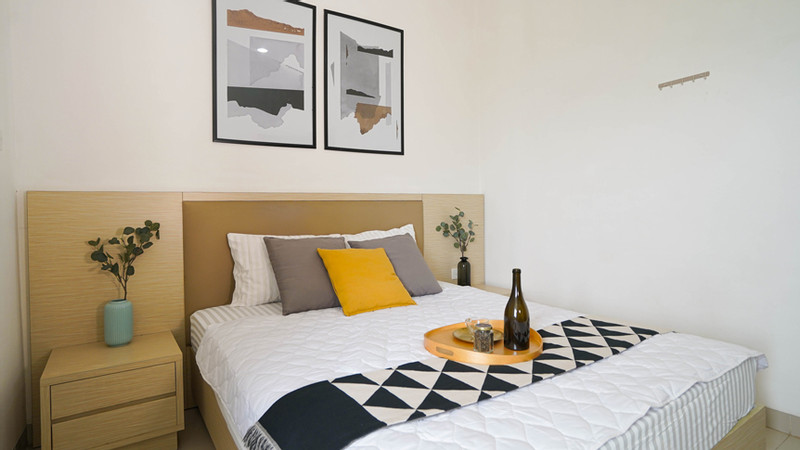Thinking of Working from Bali? Here’s What You Need to Know Before You Move

Bali is no longer just a tropical escape. As the global shift toward remote and flexible work continues, more professionals are moving their work to Bali. The island has transformed from a leisure destination into a strategic hub for digital nomads and global talent.
With coworking spaces, global communities, and reliable infrastructure, Bali offers a lifestyle that blends productivity and well-being. It’s one of Southeast Asia’s top destinations for flexible work and modern living, where you can balance meetings with surf sessions or café breaks overlooking rice fields.
If you’re planning to move to Bali for work, preparation is key. Beyond booking a flight, take time to understand visa requirements, explore neighborhoods, and find accommodation that supports your professional and personal needs.
Preparing for the Move

Before packing your bags, it’s essential to understand that moving to Bali is more than a change of scenery, it’s a shift in how you live and work. The process blends practical planning, cultural sensitivity, and emotional readiness to ensure a smooth transition into island life.
1. Visa and legal documents
The type of visa you need depends on your purpose and work arrangement in Bali. Many remote professionals and freelancers opt for the Second Home Visa or B211A Visit Visa, while employees transferring from a company abroad may require a work permit (KITAS) sponsored by their employer.
Each option varies in length of stay, renewal conditions, and documentation requirements. It’s best to consult the Directorate General of Immigration of Indonesia or a licensed visa agent to ensure your paperwork is complete before you arrive.
2. Choosing the right location and accommodation
Each area in Bali offers a distinct lifestyle, from surf-town energy to tranquil jungle living. Whether you’re a digital nomad, a creative, or relocating with family, choosing the right neighborhood can make all the difference in your Bali experience.
Canggu, Seminyak, and Kuta
These southern hotspots are the heart of Bali’s modern expat and digital nomad scene. You’ll find stylish coworking spaces, lively beach clubs, and cozy aesthetic cafés such as The Koop Roaster & Café, Revolver Café, and Kynd Café, ideal for blending work and leisure.
Canggu attracts surfers and remote workers, Seminyak draws professionals who enjoy comfort and nightlife, while Kuta remains a convenient hub with a mix of affordability and accessibility. Expect higher rents, traffic, and a more tourist-heavy vibe, but also great connectivity and community.
Ubud
For a slower, more mindful pace, head to Ubud. Surrounded by rice fields and lush jungle, it’s the creative and spiritual heart of Bali, perfect for artists, writers, and wellness enthusiasts.
Yoga studios, meditation centers, and eco-friendly villas define the area. However, the trade-off is less reliable internet and slower transport, though many find the calm environment well worth it.
Sanur and Denpasar
If you prefer practicality and comfort, Sanur and Denpasar offer a balanced lifestyle. Sanur’s calm beaches and safe, family-friendly environment attract long-term expats and retirees, while Denpasar provides proximity to offices, schools, and hospitals. You’ll enjoy city convenience with a touch of coastal relaxation, and housing here tends to be more affordable than in the southern tourist zones.
Ultimately, the best area depends on your priorities, whether that’s community and convenience or peace and inspiration. Taking time to research neighborhoods and explore housing options before you arrive will make your transition to island life in Bali much smoother.
3. Cost of living in Bali
While Bali offers a relatively affordable lifestyle compared to many Western cities, managing expectations and budgeting wisely are key. Monthly expenses vary depending on your location and lifestyle, but they typically include accommodation, utilities, transport, coworking memberships, and health insurance.
A single professional can live well on approximately IDR15 – 25 million per month, which typically covers rent, transportation, food, and leisure activities. Dining out is also highly flexible to your lifestyle.
Local meals cost as little as IDR20,000–IDR40,000, while a meal at international restaurants ranges between IDR150,000–IDR400,000 per person. Shopping at local markets and choosing locally sourced products can help reduce living expenses, while imported goods, such as wine, cheese, and cereals tend to be more expensive due to import taxes.
Getting around Bali is simple and convenient. Most residents use scooters, which can be rented for IDR1–1,5 million per month, with low fuel costs. For those who prefer not to drive, ride-hailing apps like Gojek and Grab offer reliable and affordable transportation for short commutes across the island.
Accommodation is often the biggest monthly expense, and Bali offers options for every budget and lifestyle. In popular areas like Canggu and Seminyak, private villas with pools typically range from IDR 14–33 million per month, depending on size, amenities, and proximity to the beach.
For those looking for more affordable yet comfortable options, coliving spaces and shared accommodations are excellent alternatives. Many start from around IDR 4–6 million per month, with well-located and fully serviced coliving spaces in areas like Kuta or Ubud ranging between IDR 8–12 million per month. These often include utilities, cleaning, and Wi-Fi, ideal for remote professionals and digital nomads.
You’ll also need to factor in initial setup costs, such as deposits or purchasing home essentials. Always keep an emergency fund for unexpected events, such as medical needs or sudden travel, since these can add up quickly.
4. Adjusting culturally and emotionally
Once the practical details are in place, the next step is adapting to life on the island itself. Adjusting to Bali goes beyond logistics, it’s about embracing a culture rooted in balance, spirituality, and community.
Showing respect by learning basic Bahasa Indonesia, following local etiquette (such as dressing modestly at temples and greeting others politely), and participating in community life can help you connect more deeply with locals. With openness and patience, you’ll gradually align with Bali’s peaceful rhythm and feel at home in its unique way of life.
Accommodation in Bali: Hotel vs. Villa vs. Coliving, Which One Feels Like Home?

Finding the right accommodation in Bali isn’t just about comfort, it’s about choosing a living setup that matches your work style and lifestyle goals. Whether you’re planning a short stay or a long-term relocation, each option offers its own rhythm and rewards.
Hotels are great for newcomers or short-term stays. They provide full-service convenience like daily cleaning, security, and on-site dining, allowing you to settle in quickly. However, they can feel impersonal over time and are often more expensive for long-term living.
Villas offer privacy, space, and the quintessential Balinese lifestyle. You’ll enjoy independence and comfort, often with your own pool and garden. Yet, managing utilities, maintenance, and staff can be challenging if you’re not familiar with local systems, especially for expats balancing remote work or frequent travel.
Coliving spaces, meanwhile, bridge the gap between comfort and community. They combine private, furnished rooms with shared amenities and social interaction, perfect for professionals and digital nomads who value both productivity and connection. With utilities, cleaning, and Wi-Fi included in one monthly fee, coliving offers a stress-free setup that helps you focus on what really matters: your work and island life.
Your accommodation in Bali will shape much of your daily experience. A good home is more than just a place to sleep, it’s where you recharge, focus, and build your routine. Rukita Sunset Road Coliving Kuta Bali is the perfect home base for professionals and digital nomads seeking convenience, comfort, and community all in one place.
Located along one of Kuta’s most strategic main roads, this modern coliving space offers fully furnished, ready-to-move-in rooms with an all-inclusive setup. Enjoy high-speed Wi-Fi, free laundry, housekeeping service, 24/7 security, and spacious communal areas, all designed so you can focus on your work and lifestyle, not the logistics.
Living at Rukita means becoming part of a supportive community of like-minded residents who value balance and connection. With just one click through the Rukita app or website, you can book your room, request assistance, and manage monthly payments effortlessly. More than just a place to stay, Rukita Sunset Road Coliving helps you settle in faster, stay productive, and truly make the most of your Bali experience.
Bagikan artikel ini

